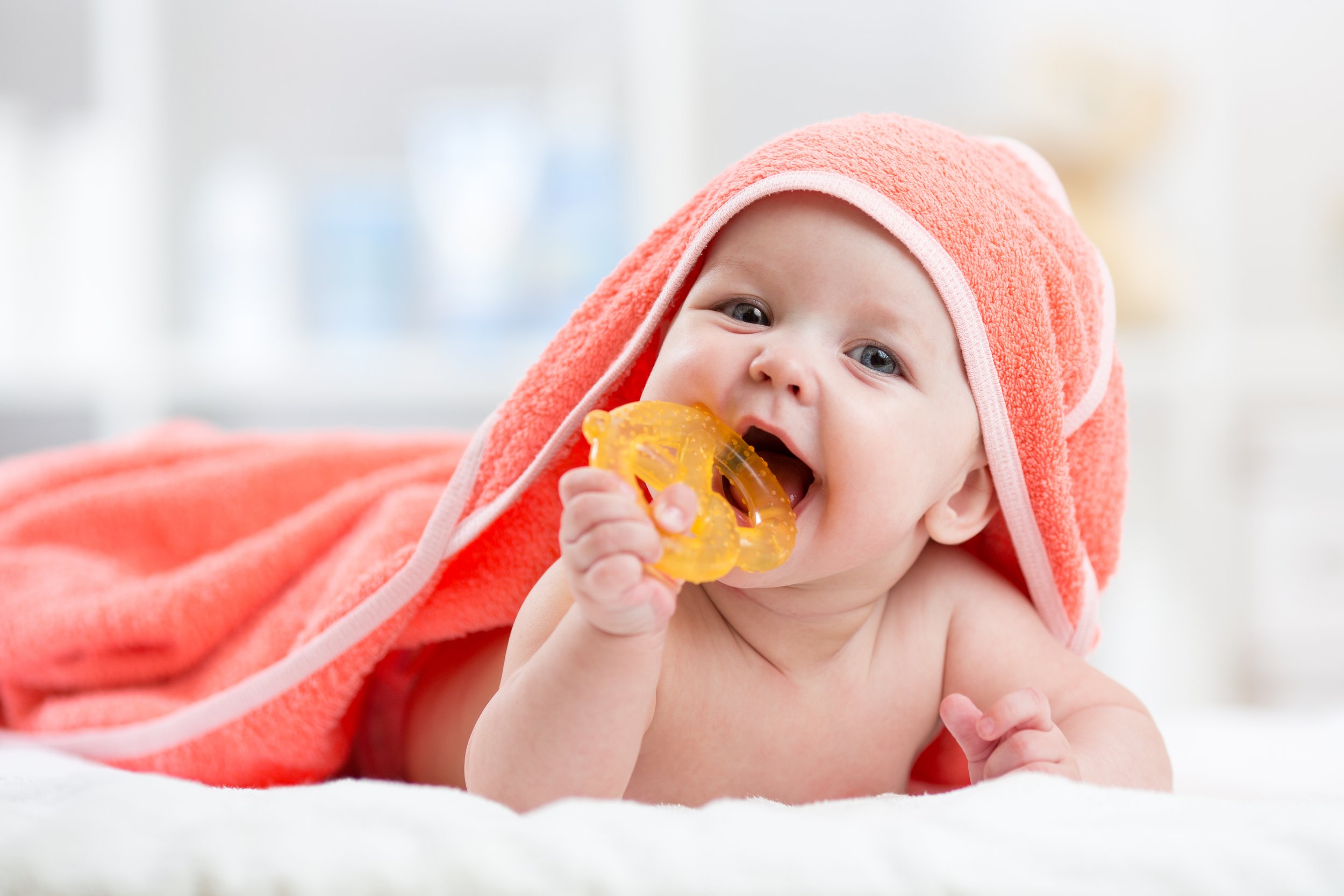What to Know About Teething
As a new parent, you may feel anxious about your baby’s new teeth appearing. But don’t worry! Growing teeth is an important physical milestone for your child. Teething shows that your child is on the right track developmentally. This is an exciting new season in his or her life (and your life as a parent!) and also your child’s next step towards chewing food and speech development.
Read on to learn more about when babies start growing teeth and tips for helping soothe a fussy baby.
What to expect during the teething stage?
Most babies will begin to develop teeth between around 6 months of age. However, there is a wide age range for when the first tooth may actually appear. Some infants start teething as early as 3 month but some may not see their first tooth appear until 12 months. Typically, the first teeth that appear are the lower front teeth.
INTERESTING FACT: Did you know that babies are born with a full set of 20 primary teeth hidden in their jawbones?
You are simply waiting for them to “erupt”, which is the process of primary teeth breaking through the gums. (And yes, “erupt” is an appropriate term for how some children end up experiencing teething, which is why Dr. Caple will share some helpful tips for soothing a teething baby below.)
What is the eruption process for a baby tooth?
Once a fully developed tooth is ready under the gums, it will usually take a couple of days for the tooth to erupt. Your infant may experience symptoms for about a week until the tooth breaks through.
What are some signs that your baby is teething?
Teething babies may exhibit a variety of symptoms. Some infants may sometimes be fussy, drool more than normal, and may want to chew on something hard.
Signs that your baby may be teething include: irritability or fussiness, drooling, chewing on firm solid objects.
How to soothe a teething baby?
The teething process can feel intimidating for new parents. However, it is also important to remember that it can be a challenging and even painful experience for your baby. To help make the process as smooth as possible, here are some helpful tips for what to do and not do to soothe your baby’s sensitive and sore gums.
Tips For Soothing A Teething Baby
Follow the 4 tips listed below to help soothe sore gums. Questions or concerns? Schedule your FREE infant oral exam with Dr. Brent Caple today!
Do’s
Massage your baby’s gums with a clean finger, damp washcloth, or clean dampened gauze pad
Offer something cold - chilling a washcloth or teething ring for a baby to chew on can be very soothing.
Provide a teething ring of hard rubber for the baby to bite down on. Please make sure the teething ring is cold but not frozen. If the object is too hard, it can hurt your child’s gums.
Use acetaminophen on an occasional basis - this may help to alleviate pain. Before giving the baby any medicines, contact your pediatrician to make sure they are safe and appropriate for your child.
Dont’s
Do not use teething gels or tablets. The U.S. Food and Drug Association warns against using any sort of topical medication to treat teething pain in children, including prescription or OTC creams and gels, or homeopathic teething tablets. These products should not be used for teething because they can be dangerous and are not useful because they wash out of a baby’s mouth within minutes.
Do not use teething jewelry. Teething jewelry includes necklaces, bracelets and other jewelry worn by either an adult or child and is marketed to relieve an infant’s teething pain. The beads of the jewelry may be made with various materials such as amber, wood, marble or silicone. There are serious risks associated with using these products such as choking, strangulation, injury to mouth and infection.
FREE Infant Oral Exam
Dr. Brent Caple, pediatric dentist in Rogers, provides complimentary infant oral exams for children 2 years and under. Call our office today to book your baby’s first dental appointment!
When should I take my baby to the dentist?
Dentists recommend that you make your first pediatric dental appointment when your child’s first tooth appears or by their first birthday. Your child’s first dental visit is an important time for your pediatric dentist to provide an infant oral exam and answer any questions you as the parent may have about oral and dental health care. This first visit also helps to establish a healthy dental home for your child.
A dental home is the pediatric dental office you choose that begins to help your child create healthy habits of daily toothbrushing, routine visits and good oral hygiene. Establishing these healthy habits early is the best way to teach your child the importance of oral and dental hygiene which will help to minimize tooth decay and cavities in the future.
If you are looking for a pediatric dentist in Rogers, Bentonville, or anywhere across Northwest Arkansas, call the dental office of Dr. Brent Caple today. Dr. Caple’s 27+ years of experience in pediatric dentistry combined with the compassionate care provided by his entire team means your child will always receive excellent dental care. Book your appointment today!


